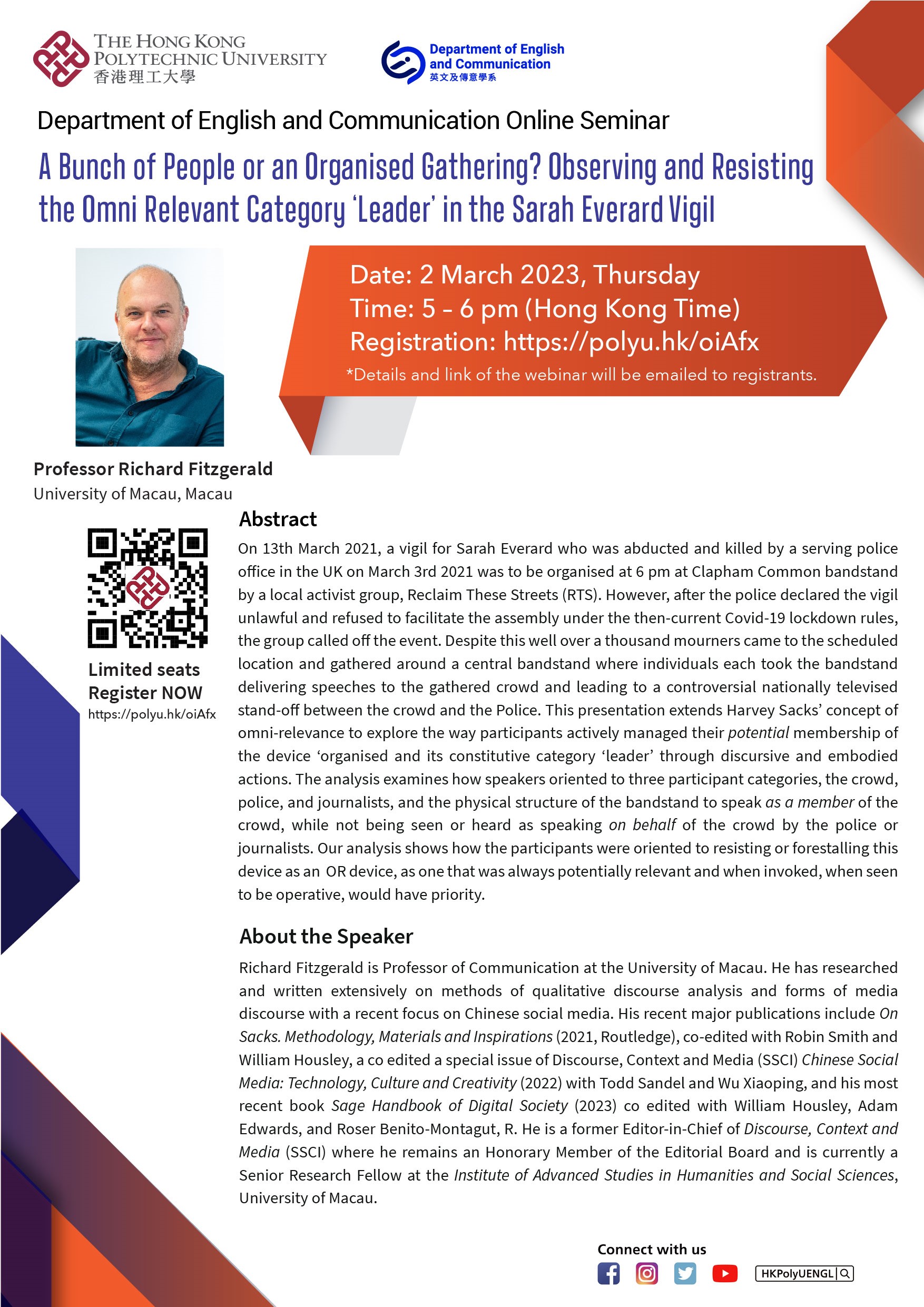A Bunch of People or an Organised Gathering? Observing and Resisting the Omni Relevant Category ‘Leader’ in the Sarah Everard Vigil
Conference/Seminar
-
Date
02 Mar 2023
-
Organiser
Department of English and Communication
-
Time
17:00 - 18:00
-
Venue
Zoom
Remarks
The talk will be conducted in English.
Summary
About the Speaker
Richard Fitzgerald is Professor of Communication at the University of Macau. He has researched and written extensively on methods of qualitative discourse analysis and forms of media discourse with a recent focus on Chinese social media. His recent major publications include On Sacks. Methodology, Materials and Inspirations (2021, Routledge), co-edited with Robin Smith and William Housley, a co edited a special issue of Discourse, Context and Media (SSCI) Chinese Social Media: Technology, Culture and Creativity (2022) with Todd Sandel and Wu Xiaoping, and his most recent book Sage Handbook of Digital Society (2023) co edited with William Housley, Adam Edwards, and Roser Benito-Montagut, R. He is a former Editor-in-Chief of Discourse, Context and Media (SSCI) where he remains an Honorary Member of the Editorial Board and is currently a Senior Research Fellow at the Institute of Advanced Studies in Humanities and Social Sciences, University of Macau.
Abstract
On 13th March 2021, a vigil for Sarah Everard who was abducted and killed by a serving police office in the UK on March 3rd 2021 was to be organised at 6 pm at Clapham Common bandstand by a local activist group, Reclaim These Streets (RTS). However, after the police declared the vigil unlawful and refused to facilitate the assembly under the then-current Covid-19 lockdown rules, the group called off the event. Despite this well over a thousand mourners came to the scheduled location and gathered around a central bandstand where individuals each took the bandstand delivering speeches to the gathered crowd and leading to a controversial nationally televised stand-off between the crowd and the Police. This presentation extends Harvey Sacks' concept of omni-relevance to explore the way participants actively managed their potential membership of the device 'organised and its constitutive category 'leader' through discursive and embodied actions. The analysis examines how speakers oriented to three participant categories, the crowd, police, and journalists, and the physical structure of the bandstand to speak as a member of the crowd, while not being seen or heard as speaking on behalf of the crowd by the police or journalists. Our analysis shows how the participants were oriented to resisting or forestalling this device as an OR device, as one that was always potentially relevant and when invoked, when seen to be operative, would have priority.



